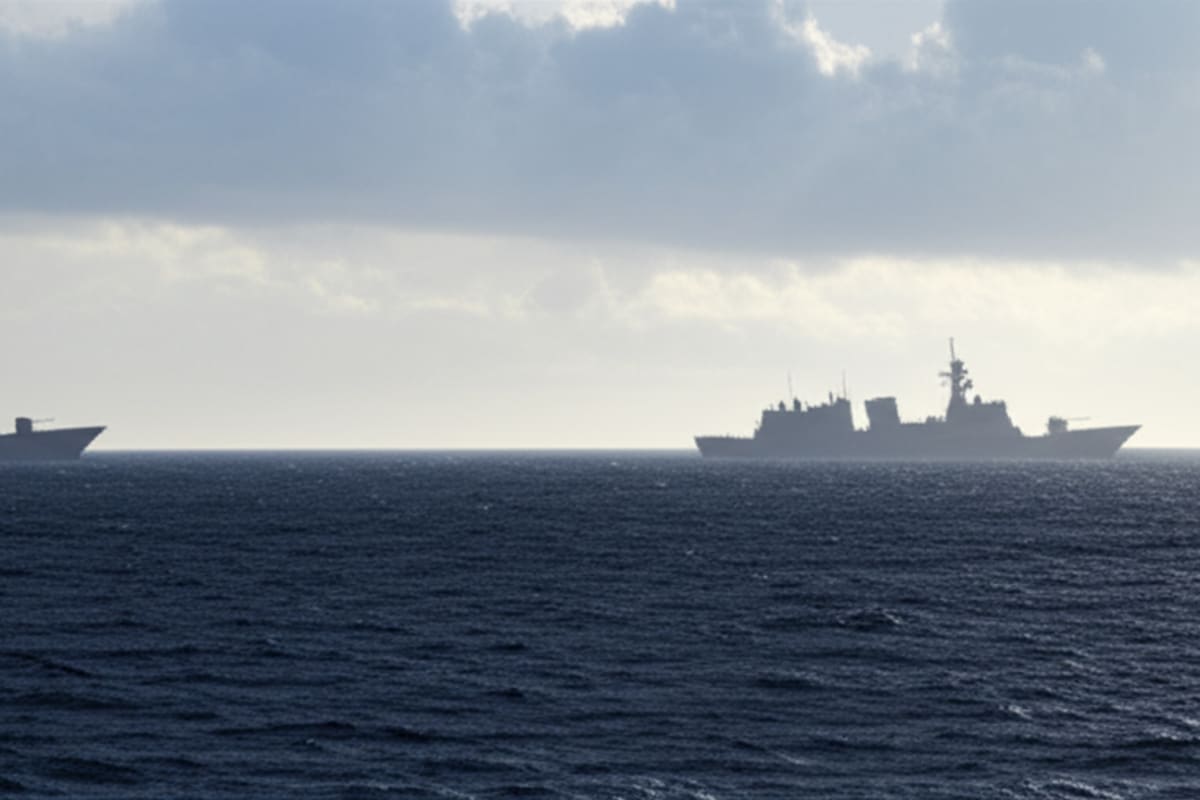China Accuses Australia, Canada of Taiwan Strait 'Provocation'

China's military has accused Australian and Canadian warships of "trouble-making and provocation" after they sailed through the Taiwan Strait. The People's Liberation Army's Eastern Theatre Command confirmed that its forces followed and warned the Australian guided-missile destroyer Brisbane and the Canadian frigate Ville de Quebec during their transit.
This incident underscores the escalating tensions in the region and highlights the increasingly assertive posture of China in the face of what it perceives as challenges to its sovereignty claims over Taiwan The Taiwan Strait: A Geopolitical Flashpoint The Strait, a vital waterway separating mainland China from Taiwan, is claimed by China as its territorial waters However, countries including the United States, Canada, Australia, Britain, and Taiwan consider it an international waterway, asserting freedom of navigation rights This fundamental disagreement forms the bedrock of the ongoing tensions in the region Implications for Southeast Asia For Southeast Asian nations, the developments in the Taiwan Strait carry significant implications
Background
The region is deeply interconnected economically with both China and Taiwan, making any escalation a considerable risk to regional stability and prosperity Many Southeast Asian countries maintain close economic and diplomatic ties with China, while simultaneously seeking to uphold international law and freedom of navigation – a principle vital for their own trade and maritime security The incident therefore places Southeast Asian nations in a delicate diplomatic position, requiring them to navigate their relationship with China while upholding their commitment to a rules-based international order China's Assertive Actions The transit of the Australian and Canadian warships through the Taiwan Strait should be viewed within the broader context of growing concerns about China's increasingly assertive actions in the region This includes its territorial claims in the South China Sea, its military build-up, and its growing economic influence This incident further amplifies existing anxieties among many Southeast Asian countries who are concerned about the potential for miscalculation or escalation leading to a larger conflict Beijing's Perspective The PLA's strong response highlights China's determination to prevent any actions it deems as legitimizing Taiwan's independence Beijing views Taiwan as a renegade province and has repeatedly warned against any support for Taiwan's self-determination
While the Australian and Canadian navies maintain that their transit was a routine exercise asserting freedom of navigation, China interprets such actions as tacit support for Taiwan and a direct challenge to its sovereignty Potential for Escalation The incident also raises questions about the potential for further escalation
While diplomatic channels remain open, the potential for accidental clashes or miscalculations remains a concern, especially given the heightened military activity in the region The incident serves as a stark reminder of the fragility of peace and stability in the Taiwan Strait and its implications for the broader Indo-Pacific region The Role of Communication Furthermore, the incident underscores the importance of open communication and clear lines of communication between major powers to prevent misinterpretations and accidents A lack of clear communication and differing interpretations of international maritime law are fueling tensions and making it more challenging to avoid conflict The international community has a crucial role to play in promoting dialogue and de-escalation efforts Conclusion: A Delicate Balancing Act In conclusion, the transit of the Australian and Canadian warships and China's reaction represents a significant escalation in tensions in the Taiwan Strait
Southeast Asian nations, heavily invested in regional peace and stability, will need to carefully consider the implications of this incident, balancing their relationships with China and their commitment to a rules-based international order
The potential for further incidents, and their impact on regional stability, remains a key concern for years to come
